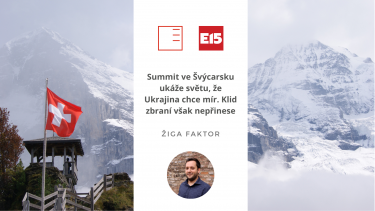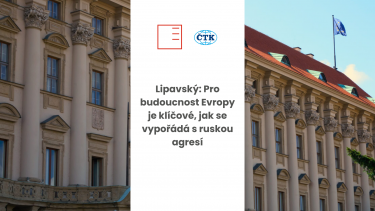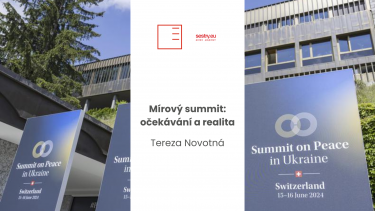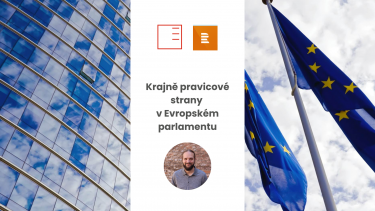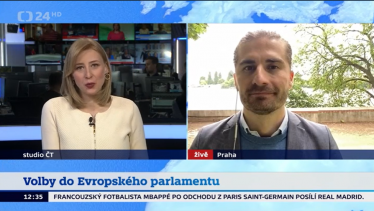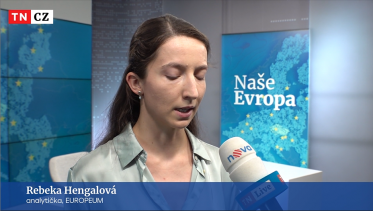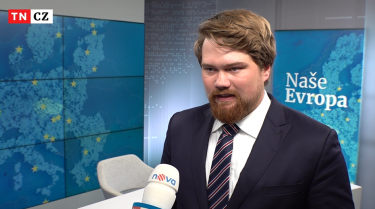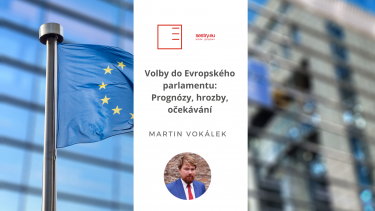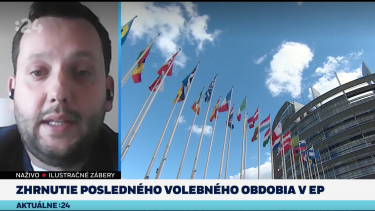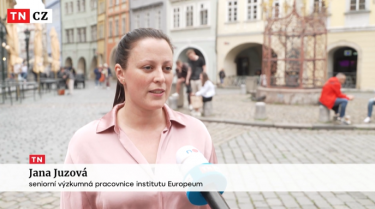e15 | Summit in Switzerland will show the world that Ukraine wants peace. But it will not bring it
The luxury Alpine hotel Bürgenstock on the shores of Lake Lucerne in Switzerland will host the largest peace conference on Ukraine to date this coming weekend. Leaders and diplomats from nearly 90 countries will be there to seek ways to end the worst armed conflict in Europe since the Second World War. The ambitious event has been accompanied by criticism over the non-participation of Russia, China and US President Joe Biden. Even so, experts say the summit could be an important first step towards peace. Žiga Faktor, deputy director and head of the Brussels office of EUROPEUM Institute, describes the possibilities the conference will offer for e15 journal.
Show more
ČTK | Lipavský: Dealing with Russian aggression is key for the future of Europe
According to Minister of Foreign Affairs Jan Lipavský, it is crucial for the future of Europe how it deals with Russia's brutal aggression towards Ukraine and its increasingly aggressive stance towards the West. He also emphasized that it will be essential for the European Union to ambitiously strengthen its role as a global player in the coming period, including prompt action in the development of the defense industry. He presented this vision in his speech at the Prague European Summit co-organized by EUROPEUM Institute and the Institute of International Relations.
Show moreSestry.eu | Peace summit in Switzerland: expectations and reality
Ninety countries and organizations confirmed their participation in the Peace Summit focusing on the war against Ukraine in Switzerland. The United States will be represented by Vice President Kamala Harris, China refused to participate and Russia was not invited. What are the key goals of the summit? Why did China decide not to come? Researcher at EUROPEUM Institute Tereza Novotná commented for Ukrainian-Polish online outlet Sestry.eu.
Show more
ČRo Plus | Far-right parties in the European Parliament
Surveys suggest that the far-right is gaining strength. Experts predict the possibility of a "Trump-like moment" in Europe. How significant is this risk for key EU players such as Germany, France, or Italy? Are there similar reasons for the rise in support for right-wing parties across Europe? These and other questions were answered by Vít Havelka, Senior Researcher at EUROPEUM Institute for Czech Radio.
Show more
ČT24 | The European Parliament faced one of the toughest periods. How did it cope with the challenges?
The concluding European Parliament experienced one of the toughest periods. It had to address challenges such as the COVID crisis, the war in Ukraine, the energy crisis, and the migration pact. How did the parliament deal with these complex issues? Viktor Daněk, Deputy Director of the EUROPEUM Institute, assessed the effectiveness of MEPs on a daily broadcast of ČT24.
Show moreTV Nova | How does the Czech public view climate change and the development of renewable energy sources?
Before the upcoming elections to the European Parliament, a debate was held on TV Nova among the leading figures of the seven main political parties, movements, and coalitions. Discussions revolved around important issues such as the migration pact or the conflict in Ukraine. Rebeka Hengalová, a research fellow at EUROPEUM Institute, provided an analysis for TV Nova on how the Czech public views climate change and the development of renewable energy sources.
Show moreTV Nova | What threatens the European Union?
Before the upcoming elections to the European Parliament, a debate was held on TV Nova among the leading figures of the seven main political parties, movements, and coalitions. Important issues such as the migration pact or the conflict in Ukraine were discussed. Martin Vokálek, Director of EUROPEUM Institute, provided an analysis for TV Nova regarding the main threats facing the European Union.
Show more
Sestry.eu | European Parliament Elections: Forecasts, Threats, Expectations
The elections to the European Parliament, which are taking place place from June 6 to 9, could bring significant changes to the EU's political scene. Polls suggest that there could be a strengthening of right-wing and populist parties, which could weaken current support for Ukraine and bolster Eurosceptic and pro-Russian positions. Martin Vokálek, director of EUROPEUM Institute, commented for the Ukrainian server Sestry.eu.
Show more
RTVS | The Last Parliamentary Term in the European Parliament
What was the last parliamentary term like in the European Parliament? How did it manage two crises – the war in Ukraine and COVID-19? And how can the aid to Ukraine be assessed? Žiga Faktor, Deputy Director and Head of the Brussels Office of EUROPEUM Institute, answers these and other questions in an interview for Slovak television RTVS.
Show more
TV Nova | Brussels will deal with the enlargement of the Union. Among the candidates are Turkey or Ukraine
The elections to the European Parliament are less than a week away, and one of the main topics that Brussels will have to deal with in the coming years is the enlargement of the European Union. A total of nine countries are waiting to join the EU, but according to experts, rapid expansion is unlikely. The President of the European Council, Charles Michel, talks about the possibility of enlargement until 2030, which requires reforms from both the candidate countries and the Union itself. Jana Juzová, researcher at EUROPEUM Institute, commented on the situation for TV Nova.
Show moreStaroměstské náměstí 4/1
Prague 1 - Staré Město
110 00
tel.: +420 212 246 552
email: europeum@europeum.org
https://www.europeum.org
